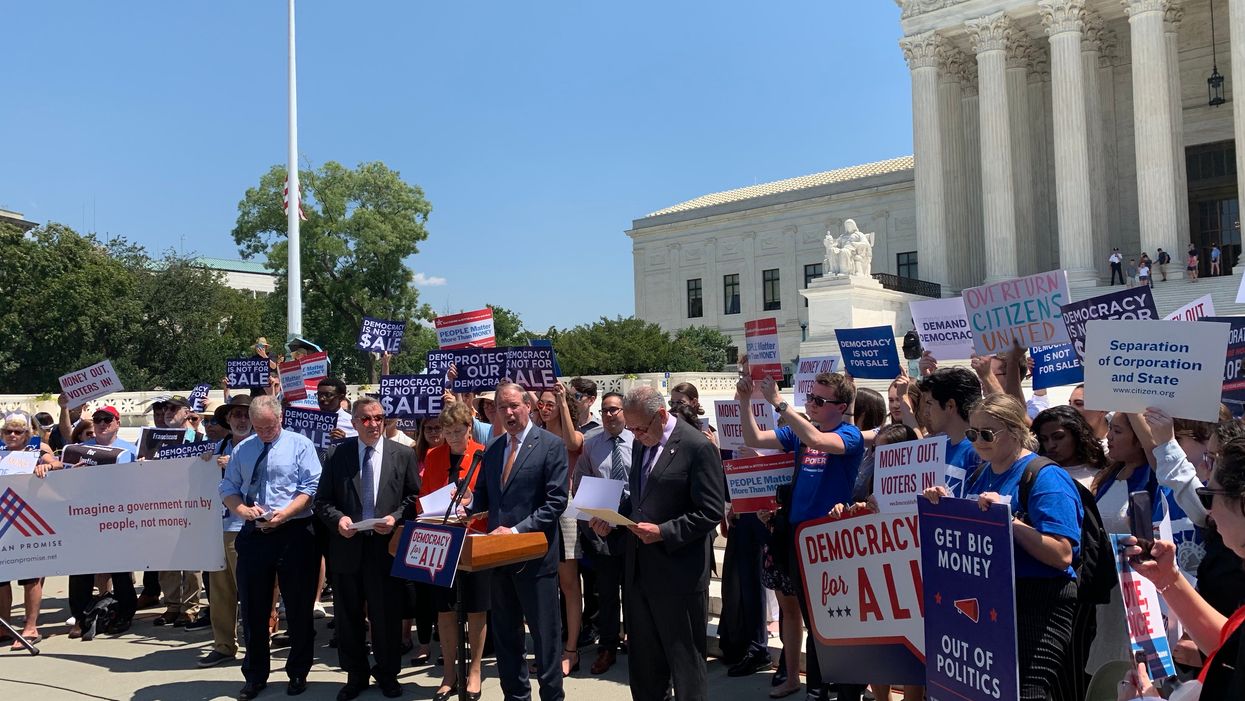Senate Democrats on Tuesday announced they were all behind a constitutional amendment that would shrink the sway of big money in politics.
But the unanimity, while symbolically important for the party's democracy reform messaging in the 2020 campaign, means next to nothing when it comes to actually changing the regulation of campaign finance.
Altering the Constitution requires the support of two-thirds of the Senate and House, plus ratification by 38 states. And Republicans in Congress (and in most of the statehouses) are just as unified in their opposition as the Democratic senators are in favor of their proposal. It would effectively overturn the Supreme Court's landmark 2010 decision in Citizens United v Federal Election Commission— which held that unlimited political spending by corporations, nonprofit organizations and labor unions was a protected form of free speech — by permitting Congress and states set rules on spending and donations in elections.
"Few decisions in the 200-and-some odd years of this republic have threatened our democracy like Citizens United. People say they want to get rid of the swamp. Citizens United is the embodiment of the swamp," Minority Leader Chuck Schumer said at a rally outside the court, across the street from the Capitol. "Overturning Citizens United is probably more important than any other single thing we could do to preserve this great and grand democracy."
Dozens of democracy reform advocates and six other senators also braved high humidity and temperatures in the low 90s.
"It was here where our democracy was put up for sale," Tom Udall of New Mexico said. "The big money interests are buying our democracy."
Udall, who is retiring next year, has pushed for such an amendment in each Congress since the case was decided. It's only received a vote once, five years ago, when the 54 votes from Democrats were 13 shy of the supermajority required to guarantee success.
The proposal has never been put to a vote on the House floor. It now enjoys the cosponsorship of 129 of the 235 Democrats and a singular Republican, John Katko of upstate New York.
It's extremely unlikely Majority Leader Mitch McConnell, in implacable foe of campaign finance regulation, will arrange a Senate vote before the next election even though his side would be almost guaranteed to prevail. It's unclear if the Democratic majority in the House has any interest in conducting a vote to test the proposal's strength — knowing 290 votes there are unachievable.
Overturning Citizens United has been a nearly unifying democracy reform stance of the Democratic presidential hopefuls as well. All but two of the 20 candidates who will be debating in Detroit this week are in favor of reversing the Supreme Court precedent, though some favor a constitutional amendment and others hope the court under an ideologically different, more liberal majority would reverse the decision.




















